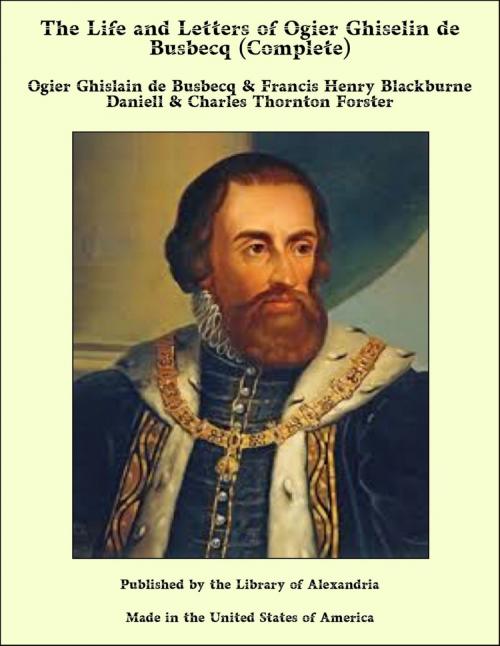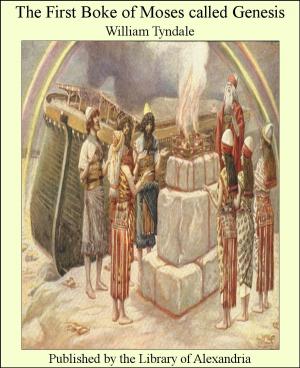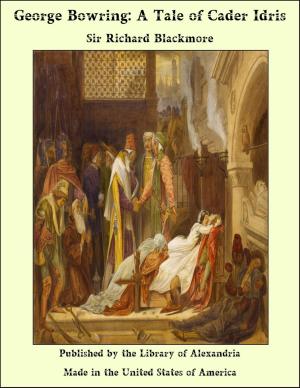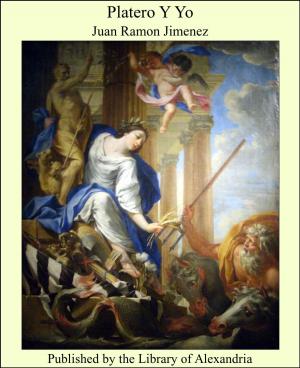The Life and Letters of Ogier Ghiselin de Busbecq (Complete)
Nonfiction, Religion & Spirituality, New Age, History, Fiction & Literature| Author: | Ogier Ghislain de Busbecq & Francis Henry Blackburne Daniell & Charles Thornton Forster | ISBN: | 9781465611581 |
| Publisher: | Library of Alexandria | Publication: | March 8, 2015 |
| Imprint: | Language: | English |
| Author: | Ogier Ghislain de Busbecq & Francis Henry Blackburne Daniell & Charles Thornton Forster |
| ISBN: | 9781465611581 |
| Publisher: | Library of Alexandria |
| Publication: | March 8, 2015 |
| Imprint: | |
| Language: | English |
The days are now past when students were content to take their history at second hand, and there is therefore the less reason to apologise for introducing to the reader, in an English dress, the letters of one who was an eyewitness and actor in some of the most important events in the sixteenth century. Several of the most striking passages in Robertson’s History of Charles V. are taken from Busbecq; De Thou has borrowed largely from his letters; and the pages of Gibbon, Coxe, Von Hammer, Ranke, Creasy, and Motley, testify to the value of information derived from this source. It must not, however, be supposed that all that is historically valuable in his writings has found a place in the works of modern authors. On the contrary, the evidence which Busbecq furnishes has often been forgotten or ignored. A remarkable instance of this neglect is to be found in Prescott’s account of the capture of Djerbé, or Gelves, by the Turks. The historian of Philip II. has made up this part of his narrative from the conflicting and vainglorious accounts of Spanish writers, and does not even allude to the plain, unvarnished tale which Busbecq tells—a tale which he must have heard from the lips of the commander of the Christian forces, his friend Don Alvaro de Sandé, and which he had abundant opportunities of verifying from other sources. The revival of the Eastern Question has drawn attention in France to the career and policy of one who was so successful as an ambassador at Constantinople, and the life of Ogier Ghiselin de Busbecq has been the subject of two treatises at least since 1860, while a far more important work dealing with our author’s life is about to issue from the press. Of this last we have been allowed to see the proof-sheets, and we take this opportunity of expressing our obligation to the author, Monsieur Jean Dalle, Maire de Bousbecque. His book is a perfect storehouse of local information, and must prove invaluable to any future historian of the Flemings. It is entitled Histoire de Bousbecque. During the seventeenth and eighteenth centuries hardly any author was so popular as Busbecq. More than twenty editions of his letters were published in the literary capitals of Europe—Antwerp, Paris, Bâle, Frankfort, Hanau, Munich, Louvain, Leipsic, London, Oxford and Glasgow. His merits as a recorder of contemporary history are briefly sketched by a writer of that period, who thus describes his despatches to Rodolph: ‘C’est un portrait au naturel des affaires de France sous le régne de Henri III. Il raconte les choses avec une naïveté si grande qu’elles semblent se passer à nos yeux. On ne trouve point ailleurs tant de faits historiques en si peu de discours. Les grands mouvemens, comme la conspiration d’Anvers, et les petites intrigues de la cour y sont également bien marquées. Les attitudes (pour ainsi dire) dans lesquelles il met Henri III., la Reine Mere, le duc d’Alençon, le roi de Navarre, la reine Marguerite, le duc de Guise, le duc d’Espernon, et les autres Courtisans ou Favoris de ce tems-là, nous les montrent du côté qui nous en découvre, à coup seur, le fort et le foible, le bon et le mauvais.’
The days are now past when students were content to take their history at second hand, and there is therefore the less reason to apologise for introducing to the reader, in an English dress, the letters of one who was an eyewitness and actor in some of the most important events in the sixteenth century. Several of the most striking passages in Robertson’s History of Charles V. are taken from Busbecq; De Thou has borrowed largely from his letters; and the pages of Gibbon, Coxe, Von Hammer, Ranke, Creasy, and Motley, testify to the value of information derived from this source. It must not, however, be supposed that all that is historically valuable in his writings has found a place in the works of modern authors. On the contrary, the evidence which Busbecq furnishes has often been forgotten or ignored. A remarkable instance of this neglect is to be found in Prescott’s account of the capture of Djerbé, or Gelves, by the Turks. The historian of Philip II. has made up this part of his narrative from the conflicting and vainglorious accounts of Spanish writers, and does not even allude to the plain, unvarnished tale which Busbecq tells—a tale which he must have heard from the lips of the commander of the Christian forces, his friend Don Alvaro de Sandé, and which he had abundant opportunities of verifying from other sources. The revival of the Eastern Question has drawn attention in France to the career and policy of one who was so successful as an ambassador at Constantinople, and the life of Ogier Ghiselin de Busbecq has been the subject of two treatises at least since 1860, while a far more important work dealing with our author’s life is about to issue from the press. Of this last we have been allowed to see the proof-sheets, and we take this opportunity of expressing our obligation to the author, Monsieur Jean Dalle, Maire de Bousbecque. His book is a perfect storehouse of local information, and must prove invaluable to any future historian of the Flemings. It is entitled Histoire de Bousbecque. During the seventeenth and eighteenth centuries hardly any author was so popular as Busbecq. More than twenty editions of his letters were published in the literary capitals of Europe—Antwerp, Paris, Bâle, Frankfort, Hanau, Munich, Louvain, Leipsic, London, Oxford and Glasgow. His merits as a recorder of contemporary history are briefly sketched by a writer of that period, who thus describes his despatches to Rodolph: ‘C’est un portrait au naturel des affaires de France sous le régne de Henri III. Il raconte les choses avec une naïveté si grande qu’elles semblent se passer à nos yeux. On ne trouve point ailleurs tant de faits historiques en si peu de discours. Les grands mouvemens, comme la conspiration d’Anvers, et les petites intrigues de la cour y sont également bien marquées. Les attitudes (pour ainsi dire) dans lesquelles il met Henri III., la Reine Mere, le duc d’Alençon, le roi de Navarre, la reine Marguerite, le duc de Guise, le duc d’Espernon, et les autres Courtisans ou Favoris de ce tems-là, nous les montrent du côté qui nous en découvre, à coup seur, le fort et le foible, le bon et le mauvais.’















